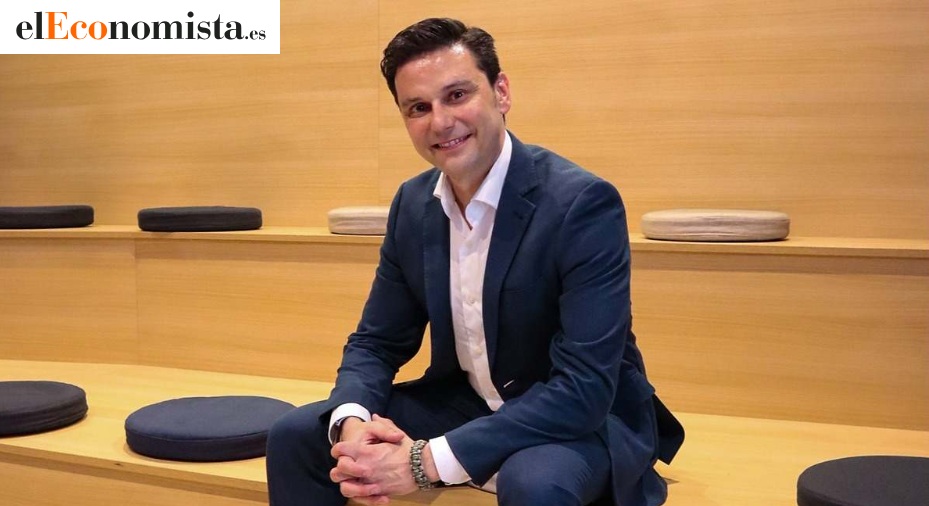Categories:
By Iván López, Global VP Corporate Sales at ODILO
Article published by EL ESPAÑOL
We are living in a time of radical transformation in the workplace. The emergence of artificial intelligence is impacting business models and organizational productivity, and is forcing us to redefine the paradigm of professional training urgently. We are no longer talking about training once for a lifetime, but rather about doing so constantly, in a personalized way, and above all, with a logic based on data rather than intuition.
According to the World Economic Forum’s Future of Jobs Report 2023, 44% of workers’ skills will be disrupted in the next five years, and almost six out of ten employees will need to upgrade their skills. This speed of change is testing the adaptability of companies and professionals, and making continuous training a structural imperative. In this new scenario, companies must ask themselves fundamental questions: How can we know what each person needs to learn? Which skills are a priority given the challenges each team faces? Where are the gaps that are preventing us from moving forward at the pace the business demands?
Artificial intelligence is bringing about an unprecedented change of scale here. Many organizations are promoting an AI-based continuous training model that allows skills to be assessed in real time, specific reskilling and upskilling needs to be identified, and truly effective learning plans to be designed. Thanks to its ability to analyze large volumes of data (on performance, roles, strategic objectives, and even professional aspirations), it is now possible to generate dynamic competency maps that reveal the current state of talent, allowing us to anticipate gaps and design personalized learning paths. We are no longer talking about isolated courses or training programs, but rather experiences tailored to each professional’s profile, with relevant content, diverse formats such as video, podcasts, simulations, or microlearning, and precise tracking of progress.
This approach completely changes the way we understand corporate training. It is about offering the right content to the right person at the right time. It is about activating talent, not accumulating knowledge. And above all, it is about integrating learning into the natural flow of work, so that learning is part of everyday life and not an activity disconnected from professional reality.
In this context, an idea that is shaping the new paradigm of talent development is gaining momentum: “No more courses, more knowledge.” In a world where information is multiplying at breakneck speed, this phrase resonates as a call to rethink how we learn and grow professionally. It is no longer enough to accumulate certificates; the actual value lies in the depth and applicability of the knowledge acquired.
Knowledge, moreover, is built beyond traditional courses. Work experiences, personal projects, and real-world problem-solving are potent sources of learning. Talking to experts, sharing ideas, and receiving direct feedback can contribute much more than any structured syllabus. Self-directed curiosity, which involves investigating, experimenting, and making mistakes, is one of the fundamental drivers of intellectual growth.
Committing to knowledge rather than courses has multiple advantages. Deep knowledge allows for greater adaptability to changing contexts, while course content can quickly become obsolete. In addition, learning from diverse sources stimulates critical thinking, the ability to analyze, question, and create, rather than just memorize. And in a market saturated with degrees, those who truly demonstrate know-how, problem-solving skills, and the ability to contribute practical solutions position themselves with a clear competitive advantage.
To enhance this type of learning with real impact, it is necessary to build personalized paths combining books, podcasts, mentoring, and real projects. Sharing knowledge, whether through writing, teaching, or presenting case studies, reinforces what has been learned and multiplies its value. Above all, we must shift the focus: measure progress by what a person can do and contribute, not by the number of certificates they have accumulated.
This type of approach generates double value: strategic for the company and experiential for the professional. On the one hand, it allows training investments to be prioritized with a clear return on investment, aligned with business objectives. On the other hand, it offers each person a motivating, clear development path tailored to their interests and challenges.
In this regard, a study by the IBM Institute for Business Value conducted with CEOs reveals that a third of the workforce will need to be retrained in the next three years. 65% say they will use automation to address skills gaps. Organizations leading this transition are not only using AI as an efficiency tool but as a catalyst for more profound cultural transformation.
We know that moving from static models to living learning environments is a necessary transition. One where knowledge flows, adapts, and becomes tangible value for all business stakeholders. Because in a world where everything changes, the ability to learn quickly and well is not just a key competency: it is the actual driver of the professional future.
